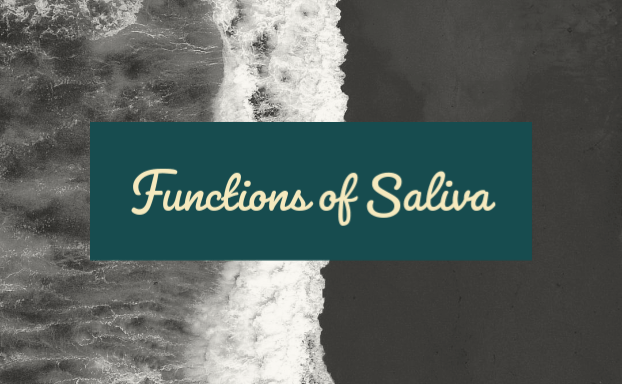The most important function of any of the salivary gland Major (Parotid, Sub-mandibular, Sub-lingual gland) or Minor (Labial and buccal glands, Glossopalatine glands, Palatine glands, Lingual glands, Von Ebner’s glands) salivary gland is the production and the secretion of saliva. We shall discuss the functions of saliva in this post.
Oral cavity protection is the major function of the saliva along with other functions as discussed below.
The functions of saliva can be divided under following categories:
- Protection
- Buffering action
- Tooth Integrity
- Antimicrobial activity
- Tissue repair
- Digestion
- Taste
- Speech
Protection
Clearance is seen as water is present in saliva.
Lubrication due to mucins, glycoproteins present in saliva
Thermal/Chemical Insulation due to mucins
Pellicle formation due to Proteins, Glycoproteins and mucins present in saliva
Tannin Binding as basic proline rich proteins and tistatins
Buffering
Neutralization of acid is due to bicarbonates present in saliva
Tooth Integrity
Saliva helps in enamel maturation and repair due to presence of Calcium phosphate, Fluoride, Acidic proline rich proteins
Antimicrobial activity
Physical barrier due to presence of mucins
Immune defense due to presence of Secretory IgA
Non Immune defense due to presence of Peroxidase, Lactoferrin, Lyso defensins
Tissue Repair
Wound healing is one of the important function of saliva. This is possible due to presence of growth factors, trefoil proteins
Digestion
Bolus formation due to presence of Water, Mucin
Starch/Triglyceride digestion due to presence of Amylase, Lipase
Taste
Solution of molecules maintains the taste buds due to presence of Gustin.
Speech
Saliva keeps the oral tissue lubricated which facilitates speech and hence helps in vocalization
We are thankful to Dr. Vasu Sridhar for providing us with notes.


